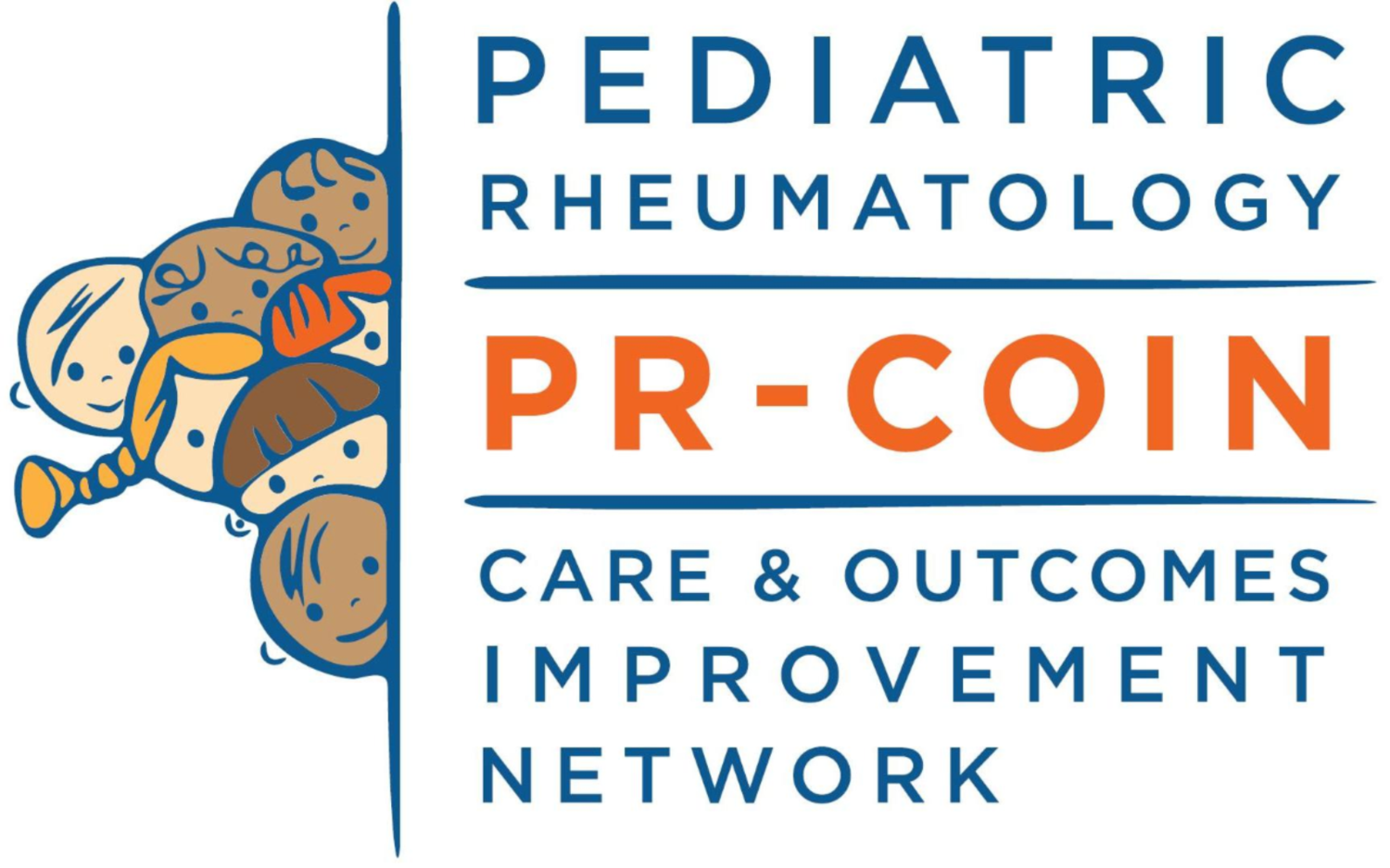
OUR STORY
Juvenile idiopathic arthritis (JIA) encompasses a group of incurable conditions characterized by autoimmune inflammatory arthritis. JIA is one of the more common chronic health conditions of childhood, impacting about 1 in 1000 children. JIA is an important source of morbidity: it often persists into adulthood and may result in joint destruction, visual impairment due to uveitis, and permanent disability. JIA frequently requires chronic treatment with immunosuppressive medications including biologic therapeutics. However, there is significant variation in the treatment of patients with JIA which may result in some patients not achieving the best outcomes possible.
Since only small numbers of patients are seen at each individual center, a multicenter collaborative network is necessary to identify best practices in care through a population registry. Such a registry is designed to facilitate quality improvement initiatives at each practice. PR-COIN aggregate data from several pediatric rheumatology practices to systematically record and track how patients are being treated and to study patient outcomes to better understand which treatment approaches are optimal.
PR-COIN Origin (2010)
PR-COIN was formed with the mission to improve dramatically, the outcomes of care for children with Juvenile Idiopathic Arthritis. PR- COIN received initial funding from a generous anonymous donor, the Arthritis Foundation, and a matching grant from the Center for Education and Research in Therapeutics (CERT) at Cincinnati Children’s Hospital Medical Center. The American College of Rheumatology (ACR) also supported PR-COIN through their Rheumatology Clinical Registry (RCR), which was designed to support quality improvement and maintenance of certification efforts of the general ACR membership. With this foundational work in place, seven pediatric rheumatology centers volunteered to work with PR-COIN’s Coordinating Team to design, test, refine and pilot initial data collection tools and the electronic data entry system.
PR-COIN Launches as an Improvement Collaborative (2011)
Early member activities established pre-intervention baseline data and included training in performance improvement methodology. From 2011 to 2016, PR-COIN grew to 17 centers across the United States and Canada. Our primary areas of focus were programming the measures validated by evidence based research, training centers on QI methods, establishing data collection best practices, and creating a culture of learning and sharing.
To this day, teams share knowledge gained through regularly scheduled collaborative activities based upon the Institute for Healthcare Improvement’s Breakthrough Series approach.
As a Quality Improvement Network, we offer member teams many resources and opportunities for learning, interaction, and cooperation. PR-COIN members receive team-specific and collaborative-aggregate data. Twice yearly meetings and monthly webinars provide education from experts about effective clinic processes, treatments, and best practices. Teams readily share details of their clinic processes, and all materials are available on PR-COIN's secure member only website. All teams receive initial and ongoing training in quality improvement techniques and are supported by individual team coaching, so that all can more effectively improve the delivery of care.
PR-COIN recognizes patients and their families as critical partners in care. As early as 2012, PR-COIN invested resources and time to build capability at its centers for engaging families. The efforts led to the creation of Parent Working Group (PWG), with the mission to work alongside providers to identify better ways to deliver care. The PWG has increasingly expanded its reach, from a reactive contribution (ex: providing feedback via surveys) to being fully integrated in the design, launch and implementation of a new initiative at their center and at the network level.
As a result of our early efforts, we have statistically improved the performance of medication safety monitoring labs, assessment of physical functioning, and increased our counseling about medications.
Steering Committee and Support Team pragmatically prioritize, and then implement focused initiatives to support improved results; however PR-COIN teams are free to choose improvement initiatives of greatest value to them.
PR-COIN (today)
Thanks to a recent PCORI award, PR-COIN has transitioned to a new custom built registry with on-demand reports available at the network level as well as at the individual center level. There are reports to track performance on 19 health care outcome and process measures for treating children with JIA, data quality reports help centers ensure registry data is complete and correct, Pre-Visit Planning reports to support clinicians to better prepare for individual patient visits, and Population Management reports to provide clinicians with an overview of the health status of their registered JIA patient population to identify gaps in care – and close them. Additionally, the PR-COIN registry has implemented a path way to electronic data transfer (EDT), either through Epic SmartForm integration into clinic visit documentation or EDT via a flat file from any database, EMR or registry with discrete data, reducing drastically any manual data entry. As our centers on-board to the new registry, we are also deploying a QI initiative called Treat to Target. This new treatment approach has been successfully implemented at Children Hospital of Philadelphia, one of PR-COIN clinics, and is being tested across our growing network of 21 centers, and adapted to telemedicine format.
For more information about our current initiatives, or our registry enhancements, please contact pr-coin@seattlechildrens.org.
